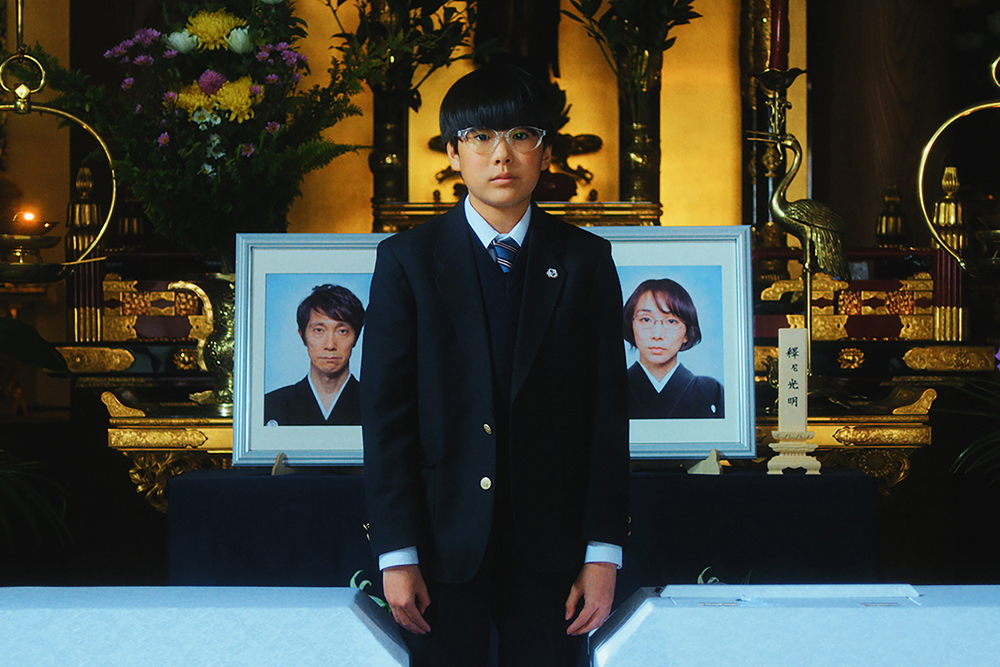ROUNDUP: Berlinale 2019

Two Unique Coming-of-Age Stories from Japan
The 69th Berlin International Film Festival featured just a handful of new Japanese works, but two of them — Hikari’s 37 Seconds and Makoto Nagahisa’s We Are Little Zombies — took home coveted awards.
37 Seconds took home the Audience Award in the Berlinale Panorama section, while We Are Little Zombies received a Special Mention in the Youth Jury Generation 14plus section. The two films couldn’t be more different in style and storyline, but both demonstrate singular, and promising, Japanese creative visions.
37 Seconds is a film about the emotional struggles of a 23-year-old woman who is physically impaired due to cerebral palsy. But if you think it might be one of those cheesy feel-good movies that exploit the situation of the disabled and turn into a sentimental story about how beautiful life is, you’re wrong. Marking its world premiere at Berlin, Hikari’s feature debut delves into the psychology and sexuality of the protagonist, in a harsh reality that she aches to alter, one way or the other, with her own strong will. Poignant and humorously written, 37 Seconds offers an amiable and inspiring look at the marginalized in Tokyo with an astonishing performance by newcomer Mei Kayama.

Quiet and shy, Yuma (Kayama) lives in Tokyo under the protection of her mother Kyoko (Misuzu Kanno). Working as a ghost manga-writer for a selfish and hypocritical friend who’s a YouTube star, Sayaka (Minori Hagiwara), Yuma’s professional life is overshadowed by Sayaka’s immense visibility. Although she is really the talent behind their popular manga series, Sayaka takes advantage of Yuma’s situation, claiming it’s her own work to increase her popularity.
Encouraged to establish her own career, Yuma attempts to become a manga writer for porn comics, but although the editor is impressed with her talent and her drive, she believes Yuma’s lack of carnal experience is clear in the approach to the drawings. As Yuma contemplates her sexuality and becomes fascinated by the idea of having a relationship for the first time, her overprotective mother gets in the way, always instilling fear about the perverts on the street.
Without stepping into the exploitive territory of victimization porn, Hikari cogently portrays Yuma’s struggle as something not necessarily limited to those who are physically impaired, but rather about a lonely woman who wants to be recognized, to be appreciated, and to taste love. Hikari’s directorial style makes references to Japanese pop culture, with an unforgettable musical score that renders the narrative more intriguing, expressing the creative energy of the protagonist and her potent journey to come of age and be somebody.

As Yuma decides to deceive her mother about what she’s actually doing when she starts going out every day, she begins to explore the world outside, which is both intriguing and yet disappointing. 37 Seconds includes one of the most nuanced and sensitive semi-sex scenes, in which the protagonist attempts to deflower herself by hiring a male prostitute. Filled with excitement, embarrassment and disappointment, Yuma’s attempt to lose her virginity results in an unsatisfying misfire. On her way home, however, she befriends a warm-hearted prostitute, Mai (Makiko Watanabe), who introduces Yuma to the alluring night life of Tokyo.
What is particularly exciting is Hikari’s depiction of marginalized characters who are not ashamed of who they are and how they live. Not only Yuma, who is possessed with a strong will to explore herself, but also Mai and her friends have a powerful vitality, proving that it is okay to be whoever you want to be. Such presentations of engaging characters are supported by powerful performances. While Kanno excels with her capability to portray a mother’s overprotectiveness in a rather sympathetic manner, Watanabe shines as another mother figure, with her usual unapologetic style and confident kindness. But in the end, first-time actress Kayama steals the show for her sensitive yet highly powerful depiction of Yuma, who conceals her idiosyncratic ability and strong will under the childish voice.

Unfortunately, the film gets muddled up in the final thirty minutes in which the narrative takes a significant turn to concentrate on Yuma’s origin story. Her journey to uncover family secrets raises many questions that seem like flaws in the script, such as: how does Yuma get a passport? Who is paying for her trip overseas? This portion of the narrative is flat and unconvincing compared with the rest of the film, which focused on the alluring discovery of the identity and sexuality of the lovely and complex protagonist.
Having said that, there is so much to celebrate in 37 Seconds, not simply because of its politically correct depiction of the disabled, but due to the respect it shows towards the marginalized in lonely Tokyo — those who deviate from the norm and yet celebrate their potency to enjoy their lives.
The other Berlinale award winner, We Are Little Zombies, has different ambitions altogether, and will be especially appealing for those who appreciate creative madness, rebellious youth, and Japanese pop culture.

We Are Little Zombies is about a legendary foursome – Hikari, Ikuko, Ishi and Takemura – teenagers who coincidentally meet at a crematorium when their parents pass away. Disappointed with the world system that ignorant human adults have created, the orphan children are devoid of emotions, and shed not a single tear for their deceased parents. Refusing to spend any more time with their remaining relatives, the four children run away together, moving from one place to another, until they end up at a garbage dump and form a kick-ass rock band, called Little Zombies.
The story is mostly narrated by Hikari, a 13-year-old boy who had been ignored by his parents and bullied at school. “Reality is too stupid to cry over,” says Hikari, whose cynical and uninterested attitude towards life make him emotionless, like a zombie. His only interest is in playing a video game, a vintage famikon-like 8-bit thing, which he carries around with him everywhere. For Hikari, life is no different from the imaginary world he experiences on the screen; a mechanical place with no tangible contact or emotion, structured by self-centered adults.

Making his feature debut with the film, director Makoto Nagahisa alluringly composes this rather typical story of teenage disappointment in life with visual marvel and formal excess. Experienced in directing music videos, Nagahisa adorns the film with overflowing technical trickery and visual stimuli, such as rapid editing, colorful costumes and weird camera angles. In a similar manner as the manga-like atmosphere in Tetsuya Nakashima’s films, the adventure of Little Zombies are presented as a video game, an animating yet impassive journey to nowhere in particular.
At the same time, however, Nagahisa also demonstrates a kinship with Shunji Iwai, a melancholic view towards loneliness among teenagers. Although all the children are strangers to emotional attachment, Nagahisa takes their issues seriously in a playful manner, delving into the social problems and systemic flaws that actually lead to such mental states among teenagers. Behind the eye-catching visuality and video game references, Nagahisa includes the personal narratives about parental irresponsibility that made the Little Zombies who they are.
In the second half of the film, the film moves to a satire of the Internet age. The unexpected popularity of the Little Zombies’ music and their tragic stories bring the children instant stardom. However, their performances and personal stories are quickly exploited by capitalism and selfish consumers. Away from nostalgia to the video game culture in the 1990s, this section offers implicit reactions to contemporary media issues, critically engaging with the way in which society and consumers take advantage of personal narratives for their own sake.

After all the media brouhaha, have the Little Zombies acquired the capability to feel? Nagahisa’s passionate effort with unlimited creativity welcomes a rather tranquil closure that is ambiguous and possibly unsatisfactory for some viewers. As the final song says, they are zombies but alive.
By Kenta Kato
Kenta Kato is a Tokyo-based writer, film critic and festival programmer, currently in the UK conducting research toward his PhD in Film at Waseda University.
Please be sure to check with the theater before going.
